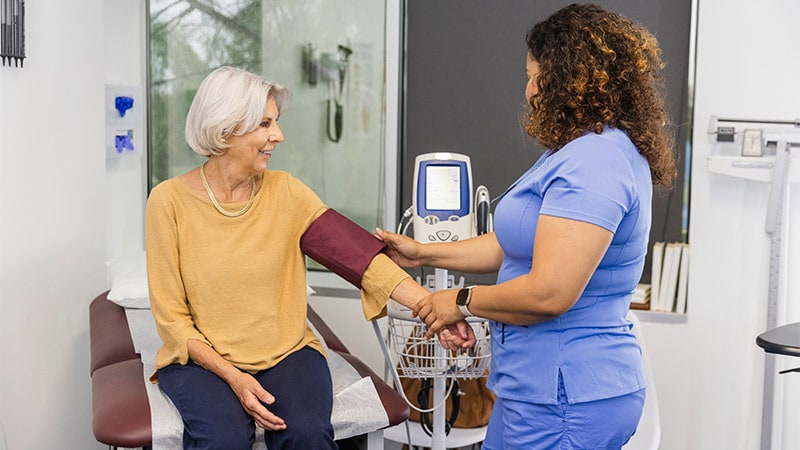[ad_1]
Canada’s federal government is taking back health funding that it previously provided to provincial and territorial governments when it finds that patients are paying for medically necessary services that should be publicly funded. The federal government also has proposed to routinely review any patient out-of-pocket expenditures and to clamp down on provinces and territories financially when it deems appropriate.
A significant factor prompting Canadians to pay for medical services out of pocket is the challenge in accessing primary care. A 2022 survey of 9000 Canadians found that 77% had a family doctor or nurse practitioner, leaving about 23% without a primary healthcare provider. The retirement of many family physicians, the decrease in new medical graduates who are specializing in family medicine, and the specialization of family physicians in areas such as maternity care or palliative care have reduced access to family physicians in Canada.
Funding Medical Services
Under the Canada Health Act (CHA), which took effect in 1984, medically necessary services that are provided by physicians must be publicly funded. This requirement has led to unintended circumstances: Today, equivalent services provided by nonphysicians are not necessarily publicly funded.
The wording of the act likely reflected the circumstances of the time, when physicians provided nearly all medically necessary services, Joss Reimer, MD, president of the Canadian Medical Association, told Medscape Medical News. “It does appear that the intention was to cover those medically necessary primary care services that, at the time, were provided by physicians.”
In response to Canadians’ out-of-pocket payments for medical care, federal Health Minister Mark Holland informed provincial and territorial health ministers of the federal government’s broader interpretation of the CHA. The newly introduced CHA Services Policy holds that medically necessary services, if provided by a physician or “physician-equivalent,” should be publicly funded through any provincial or territorial healthcare plan. Holland also declared the federal government’s intention to deduct funds from provincial or territorial health transfer payments if patients are funding their own medically necessary services.
Health Canada Responds
Patients should not pay out of pocket for medically necessary services provided by nonphysicians, a Health Canada spokesperson told Medscape Medical News by email. “The CHA Services Policy will help ensure that the administration of the CHA keeps pace with changes in healthcare and that patients are not charged to access physician-equivalent services from regulated healthcare professionals, such as nurse practitioners, midwives, and pharmacists,” wrote the spokesperson.
Reimer applauded the federal government’s intention to ensure that medically necessary care remains publicly funded, regardless of whether it is provided by a physician.
The CHA Services Policy, which will be implemented in 2026, will consider patient payment for medically necessary services “extra billing and user charges” and penalize provincial or territorial governments through deductions in federal transfer payments if they do not comply with the policy, according to Katherine Fierlbeck, a professor of political science specializing in health policy at Dalhousie University in Halifax, Nova Scotia, Canada.
“If you offer a medically necessary service, then the provincial or territorial government has to pay for it, and if a government doesn’t pay for it, then the money that they should have paid for it is going to be clawed back by Ottawa,” said Fierlbeck. She gave the example of an ultrasound investigation of soft tissue damage as a medically necessary service. An ultrasound during pregnancy to determine the sex of the fetus is not medically necessary, she said.
Public and Private
Private, for-profit healthcare in Canada results in competition with the public healthcare system for already scarce human resources, said Bernard Ho, MD, vice-chair of Canadian Doctors for Medicare, an organization dedicated to strengthening and preserving publicly funded healthcare in Canada.
Private, for-profit clinics “siphon resources away from the public system because we do not have an infinite number of doctors, nurses, MRI technicians and other healthcare providers to be able to appropriately staff both [private and public healthcare] systems,” he said. “When a private clinic opens, it pulls from the same pool of healthcare professionals already working in the public system.”
The penalization of provincial and territorial governments through deductions in healthcare transfers is not new, he added. It is one way the federal government can try to curb the number of patients paying out of pocket for medical services, he said.
Reimer, Fierlbeck, and Ho reported having no relevant financial relationships.
[ad_2]
Source link : https://www.medscape.com/viewarticle/canada-seeks-ensure-public-coverage-medical-care-2025a10002on?src=rss
Author :
Publish date : 2025-02-04 06:09:33
Copyright for syndicated content belongs to the linked Source.
